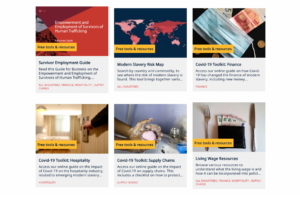The Mekong Club’s Modern Slavery Toolkit
In 2013, we established the Mekong Club’s business association. Over the years, we have built deep and trusted relationships with over 60 companies across sectors such as banking, hospitality, garment, food and beverage, toys, and footwear. Our members receive up-to-date information and expert training and consultations on issues pertinent to their industry, and we meet regularly to learn and share best practices to further the fight against modern slavery. One of the most important resources we provide is our modern slavery toolkit.
Our modern slavery toolkit was developed based on the needs identified by our association members. During our quarterly meetings, we debate and discuss what they feel is required to assist them with their modern slavery efforts. This results in recommendations from our members. Suggestions might include the development of relevant training materials, analyses of legal requirements, the creation of a modern slavery audit tool, the planning of methodologies to help a company identify or address risk within their business, or a set of modern slavery guidelines on a range of pertinent subjects. Based on each request made, the Mekong Club builds or creates what is proposed. It is then offered back to our community.


What is included in the Mekong Club’s Modern Slavery Toolkit?
Our website includes a range of different resources. Below is an overview of some of our tools.
- Modern slavery guidelines: Our website provides businesses with the following resources: key performance indicators for business professionals within supply chain companies who have responsibilities related to modern slavery; standardised modern slavery prevention language for ‘Request for Proposal’ documents; a range of resource materials highlighting human rights and business best practices; an overview of living wage approaches and trends; an employment description highlighting opportunities for modern slavery survivors; COVID modern slavery guidelines for a range of business sectors; a modern slavery transparency legislation development guide; a collection of ESG indicators; a list of adverse media terms; and a remediation tool that offers a step-by-step guide on how to address the problem if found.
- Training materials: Our extensive training materials include three standardised introductory films that help the viewer understand how modern slavery impacts different industries. Our e-learning course is comprised of two modules, each offering short videos in multiple languages, infographics, quizzes, and reference sources. This tool was created to offer businesses a flexible yet effective way to learn about modern slavery. We also develop bespoke trainings to accommodate the needs of our community.
- Modern slavery technology-based tools: Our modern slavery toolkit comprises technology-based tools with enormous potential for impact. Each of these tools solves a major problem – from auditors who do not speak the local dialect of factory workers, to under-utilised and disaggregated data, to falsified employment contracts. For example, the Apprise App represents a modern slavery audit tool that combats barriers to auditors effectively carrying out worker interviews, including language barriers, lack of privacy, as well as a lack of consistency in addressing all ILO indicators of forced labour. Workers are able to answer a set of questions on a phone by indicating a yes/no/maybe. The answers are correlated to internationally recognised standards. Another modern slavery audit tool is eMIN. This tool uses blockchain technology to underpin key migrant worker documentation, combatting issues within the recruitment process around document security.
- Legal resources: A range of legal resources are available that focus on an analysis of various topics, including Asia labour laws, transparency in supply chain legislation, child labour laws, and recruitment fees. These tools break down complex anti-slavery legislation into easy-to-access, interactive information. Users can understand the key elements of the legislation, how it impacts their business, and the requirements they need to meet to be compliant.
- Knowledge management: Our Knowledge Hub tool consists of thousands of carefully curated new articles, resources, podcasts and more. Our team select the most relevant and interesting modern slavery news each week, and upload it into our knowledge hub. The user can browse by keywords or narrow their search to country or industry to find the needed resources. There is also a platform that contains real-life examples of companies showing industry leadership in combatting modern slavery.
- Sector-specific tools: For the banking and finance community, the modern slavery toolkit includes our library of typologies that provides an understanding of how modern slavery really happens and industry-specific reports on this topic. Our industry-specific typologies demonstrate the typical journey of a modern slavery victim based on real-life case studies and events. Typologies are coupled with red flags and indicators for businesses to use in their risk assessment and remediation plans. There is also an interactive risk assessment map that combines data from various publicly available sources and allows the user to filter by country or commodity. This map helps with risk assessment by aggregating numerous modern slavery data sources in one place and is updated regularly as the data is refreshed.
How can this Modern Slavery Toolkit support/benefit the private sector?
We are very proud that the Mekong Club has brought years of experience working with companies and their many dedicated employees to provide this full range of practical tools. Our modern slavery toolkit is one of a kind. It addresses a full range of needs and requirements by offering a one-stop shop for companies seeking to include modern slavery guidelines in their strategies. In this regard, this resource helps achieve several important outcomes. First, many of the tools help increase general awareness and understanding of modern slavery. Second, the tools help practitioners gauge where they are in their efforts to set up and maintain a modern slavery strategy. Third, they help companies solve problems related to their business effectively and on time without any impediments. Fourth, they help companies to analyse their risk related to modern slavery to determine any vulnerabilities. Finally, they help to ensure that if risks are identified, they can be addressed in an efficient, effective manner.
To access our range of free Modern Slavery Toolkit, register here.
Author: Matthew Friedman

